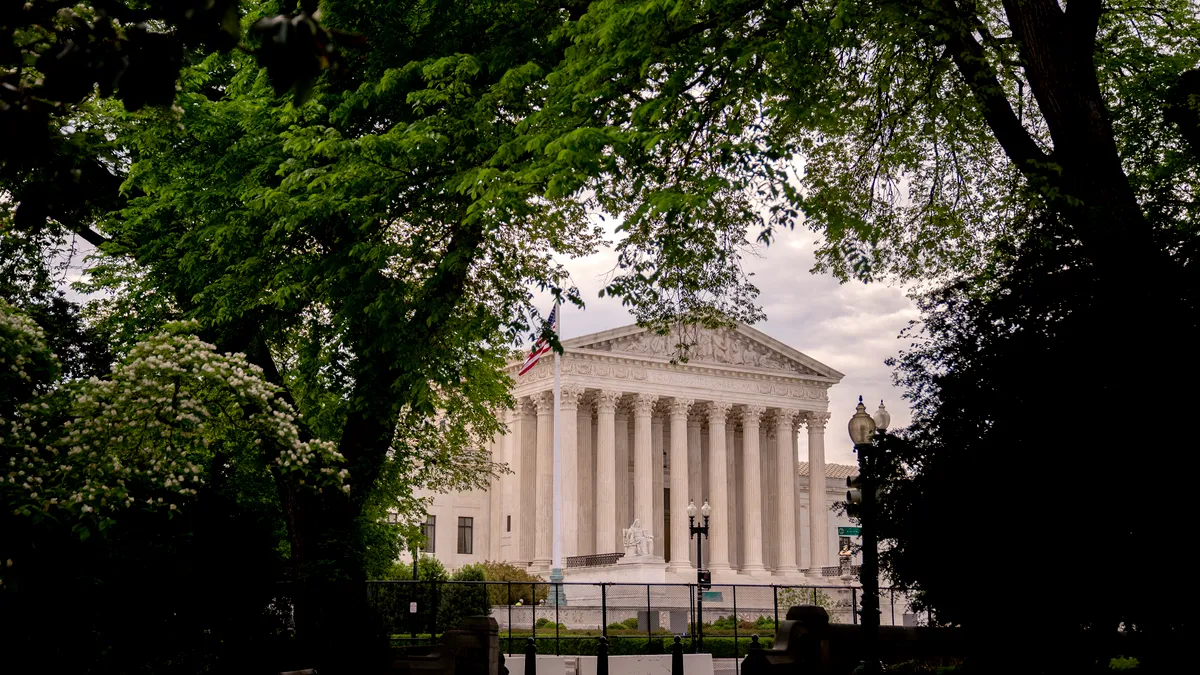Dive Brief:
- U.S. Supreme Court Justice Elena Kagan denied a California high school student's petition to return to his school in San Ramon Valley Unified School District after the school's principal, also the Title IX coordinator, authorized the student's emergency removal.
- Emergency removal, a tool put in place by the Title IX regulations that went into effect last year under the Trump administration's Department of Education, allows schools to remove someone accused of sexual assault or harassment if they are "an immediate threat to the physical health or safety of the complainant."
- The representative of John Doe, the 15-year-old accused of multiple sexual assaults, argues the defendant was receiving "no instruction – either live or remote” and is being "deprived of his educational opportunities."
Dive Insight:
The case is among the first to challenge emergency powers granted to school districts last year.
In the case, Doe denied his ex-girlfriend's allegations of sexual assault, saying they ended their relationship after approximately one month of dating. According to case documents, text messages show Doe ended the relationship against the will of Jane Roe, the anonymous ex-girlfriend and accuser. Roe's social worker claims Doe sexually assaulted his ex-girlfriend during class, shortly after their breakup in April 2021, as well as one other student in a separate incident.
On April 22, the district notified Doe it "has undertaken an individualized safety and risk analysis and has determined that you pose an immediate threat to the physical health or safety of a student or other individual arising from the allegations of Title IX Sexual Harassment."
Doe says he was asked to immediately leave campus and urged to study independently for the remainder of the school year with no live instruction. The district then extended Doe's removal to the start of the 2021-22 school year, and offered him virtual instruction, according to court documents.
"The harm to Petitioner in not attending in-person education is not only educational, but also emotionally damaging, and precludes Petitioner from participating in the comradery, physical education and other opportunities that are associated with attending high school," Doe's party claims.
"This is effectively a suspension,” Doe's advisor told the district, “which as a matter of long-standing federal law requires meaningful notice and a hearing – neither of which [John Doe] has been provided."
Doe's lawyers also add that "some school administrators have decided that an 'emergency' situation exists the moment an allegation of sexual misconduct is made, regardless of its lack of veracity."
This type of case, which does not require oral arguments and has been referred to as being on the "shadow docket," has recently come under scrutiny after the U.S. Supreme Court allowed a Texas anti-abortion statute to stand despite the Court's previous decisions in Roe v. Wade and other cases supporting abortion under the U.S. Constitution.
David Bloomfield, a professor of educational leadership, law and policy at Brooklyn College in New York, described the case as "a relatively routine matter" and not one extraordinary enough — compared to, for example, the Texas anti-abortion case — for Kagan to "take the bait," with Kagan instead showing "appropriate deference to the district's factual determination."
Bloomfield added while it's unlikely the case will make its way to the Supreme Court docket, "anything can happen."
"This guy can retroactively say that his Constitutional rights were violated or his Title IX rights were violated and that he would want compensation six years from now," Bloomfield explained. "But I don't see it happening."







 Dive Awards
Dive Awards








